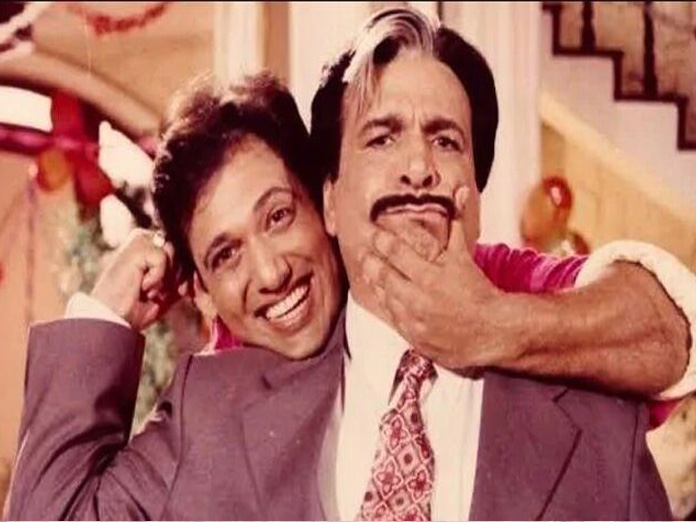Superstar in his own right!

Manmohan Desai was a frustrated man when he was directing Roti, the 1974 box office smash hit He was completely angry with the writers of the movie, they were not giving him the drama he wanted in the dialogues of the movie particularly the climax Kader Khan was introduced to him and Desai felt that a Muslim writer would write more Shayari and Muhawra than what he wanted
Manmohan Desai was a frustrated man when he was directing ‘Roti’, the 1974 box office smash hit. He was completely angry with the writers of the movie, they were not giving him the drama he wanted in the dialogues of the movie particularly the climax. Kader Khan was introduced to him and Desai felt that a Muslim writer would write more ‘Shayari’ and ‘Muhawra’ than what he wanted.
He told Kader that if he did not like the dialogues that Kader would write then he would tear the dialogues sheet in front of him. Kader took one-month time and left, only to return with a bunch of papers the next day where he had written the dialogues for the climax. Desai was not prepared for the sudden return and went about reading the papers.
As now known to all of us Desai could not finish reading the papers in one place, he would read 10 lines, get excited and move to some other place in the room, read 10 lines more and go sit in another place. By the time Desai had finished reading. He knew he had got his dialogue writer. He asked Kader Khan how much he charges; a nervous Kader told him Rs 20,000. Desai in his legendary flamboyant style told Kader, ‘What rubbish, from today you are Manmohan Desai’s writer you will be paid Rs one lakh twenty one thousand.’ Kader had arrived. We the fans will never be able to decide what to thank Manmohan Desai more for what he did to two icons – Amitabh Bachchan or Kader Khan!
Kader’s switch to acting in major character roles was also a twist, which happened during his Manmohan Desai days. Amitabh Bachchan apparently pointed out to Desai that his dialogue writer is a great actor himself. Kader had a habit of showing to his actors how the dialogue will carry more impact if spoken with style. This habit of training and letting other stars discover their brilliant selves continued for many years with Kader. Govinda has more than once acknowledged that it was Kader who taught Govinda fine voice modulation and comic timing, which helped him extend his career in Bollywood.
To those of you who are not aware besides Amitabh, Kader was one of those few men who worked for both Manmohan Desai and Prakash Mehra.
Kader Khan’s biggest contribution was the dialogues he wrote. They were written with earthy references. They could connect with audiences immediately. He did not use heavy words but created impact like the scene in ‘Parvarish’ when a mother asks her adopted cop son (Amitabh) to leave her biological son (Vinod Khanna) alone, she makes the most telling impact on a duty-bound cop son when she claims that she deserves this pardon for her son when she tells Amitabh this – “Isliye nahi ke maine tujhe apni aulad ki tarah pala hai… isliye ke tujhe apni aulad se badh ke paala hai”. Salim-Javed had created the aura of Amitabh but post their parting of ways and even during their story writing days, Kader Khan was the man, who can be credited with a major contribution to Amitabh days.
Kader’s brilliance did not just end with the pen. Once he started his innings in front of the camera, he became the necessary ingredient for almost every masala potboiler worth its weight. He could be suave Supremo in ‘Parvarish’. He could be mysterious Fakeer in ‘Muqaddar Ka Sikander’. He could be the dreaded Zafar in ‘Coolie’ and he could be the lovable principled big brother in ‘Kaalia’. He could be the comic assistant in ‘Himmatwala’ and he could be the scary dreaded terrorist leader in ‘Vardi’.
Kader Khan defined versatile acting long before Aamir Khan made it fashionable. His comic pairing with Shakti Kapoor was as instrumental in letting south makers find audiences in the north as much as the credit goes to the pair of Jeetendra and Sridevi. In fact, Kader’s comic partnership with Govinda established him as a major comedy star in the 90s and also made David Dhawan an A-lister director.
The amount of work that Kader did right from the 1970s till mid-1990s will make you wonder what if this man had not impressed Manmohan Desai on that day. Kader Khan was one of the dozen-odd pillars on which the entire 70s cinema drove itself. We did not lose a star on December 31, 2018. We lost a comet. We will all miss you Kader Bhai!
– cinemawaalebaba.blogspot.com








